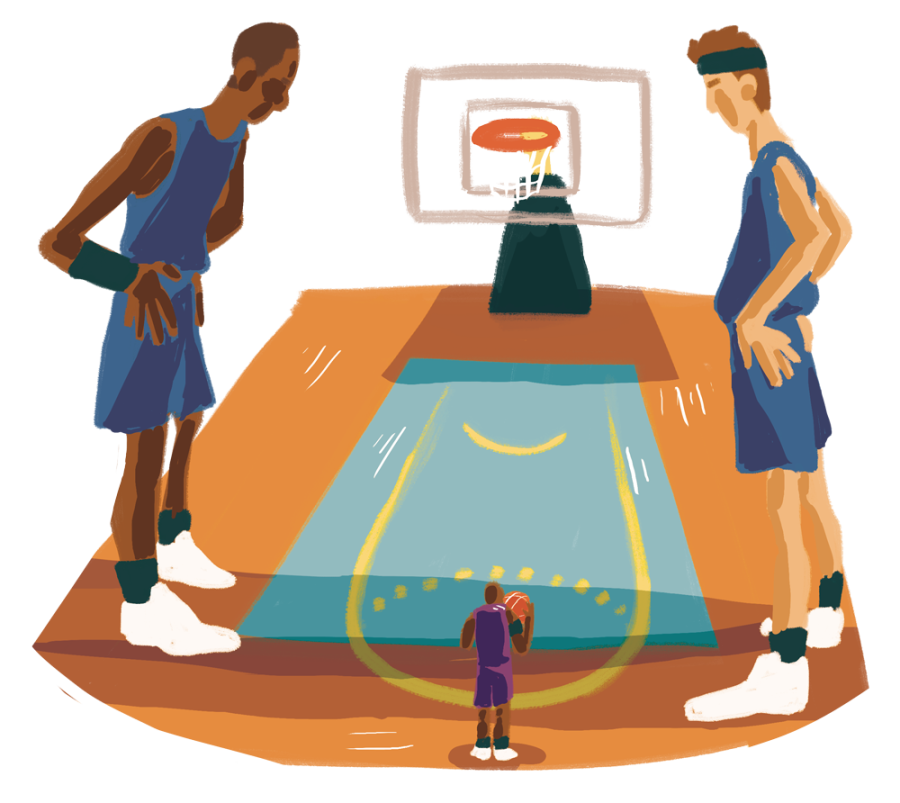No place for Hack-a-Shaq in modern NBA
May 13, 2015
The NBA Playoffs are unfolding in front of us and teams are doing whatever they can to gain an advantage. That means that some teams are implementing the “Hack-a-Shaq” strategy to the discontent of many fans, because it slows down the normally fast-paced game. In the modern NBA, there is no place for this tactic.
The Hack-a-Shaq strategy is simple. Whenever a player who is a poor free throw shooter is on the court, the opposing team intentionally fouls him resulting in two free throw opportunities. Since the player is bad at this basic chore, he will usually miss one or both shots and give possession back to the team that committed the foul.
Think Hack-a-Shaq seems a bit greedy and unfair? It is. The NBA made this scheme useless in the last two minutes of the game, as an intentional foul to a non-ball handler results in two shots and possession of the ball. Urban legend claims this rule was implemented to protect Hall of Famer Wilt Chamberlain, who often was a victim of these fouls. In late game situations, Chamberlain would regularly run away from the other team to avoid being fouled.
Hack-a-Shaq was made popular in modern times by former Dallas Mavericks head coach Don Nelson who instructed his team to foul the Chicago Bulls Dennis Rodman when the two teams played. The term Hack-a-Shaq refers to Shaquille O’Neal, a player who was the target of the game plan on many occasions during NBA games.
This technique forces the head coach of a team to decide whether or not to take a player out of the game due to his inability to shoot free throws or leave him in and risk his missing. Many big men in this league are dominant on the defensive end and excellent rebounders but are less than stellar from the line.
Golden State Warriors center Andrew Bogut is a perfect example. Through eight games in the 2015 NBA Playoffs, Bogut has shot 25 percent from the free-throw line. If the Memphis Grizzlies, the Warriors current playoff opponent, or anyone they face down the road implements Hack-a-Bogut, the Warriors championship aspirations could be in serious trouble.
Other teams are already facing this unfortunate reality. However, the strategy doesn’t always prove to be marginally beneficial for the team committing the fouls. When the Los Angeles Clippers played Houston Rockets on Sunday night, the Rockets intentionally fouled Clippers center DeAndre Jordan 17 times, resulting in Jordan finishing the game 14-34 from the line. The Rockets failed to take advantage of this, only scoring three more points than the Clippers on the 17 possessions following an intentional foul.
Three points. These three points are clearly not worth compromising the excitement that the game of basketball brings. The fast-paced thrill that fans of the game have grown to love was sacrificed on Sunday night for three measly points. The Rockets lost by 33 points, proving how crucial those three points really were to the outcome.
Not all are in favor of banishing Hack-a-Shaq. Dallas Mavericks owner Mark Cuban recently tweeted his support of the technique asserting that someone should “Teach the guy to make [free throws]. Problem solved. You don’t need to change the rules.”
Like Cuban, supporters of the method frequently make this argument claiming that these athletes are paid millions of dollars and should be able to execute on such a fundamental part of the game. I could not agree more. However, when a player shoots free throws during a game, it always happens as a result of a player being fouled while attempting a shot. With Hack-a-Shaq, this is never the case. The team implementing this game plan is intentionally exploiting this inability by specifically targeting that specific player.
The solution to the problem presented by Hack-a-Shaq is simple. Make the rules within the last two minutes apply throughout the game.
This would render Hack-a-Shaq useless. Fans would not have to sit and watch countless free throw misses and instead would get to enjoy the fast-paced product they have grown to love.







